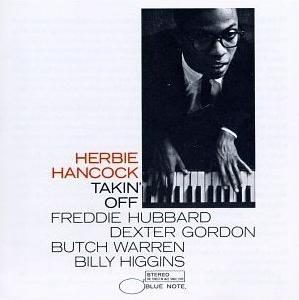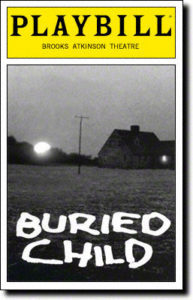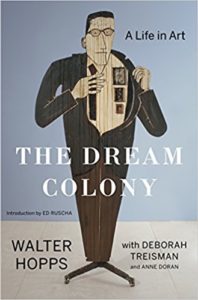Scott Timberg's Blog, page 8
August 21, 2017
Herbie Hancock and Miles Davis
MY interest in Herbie Hancock’s music has ranged over the years, but it has not so much gone up and down as much as side to side. I first heard, and loved, the funky stuff. Later I discovered his years with Miles, and then, still later, his Bill Evans-y solo records like Speak Like a Child and Empyrean Isles. My sense of his best and most enduring music varies, but Hancock remains among the most fascinating and protean living musicians.
In any case, Hancock, who I interviewed a few days ago, comes to the Hollywood Bowl on Wednesday in a bill that includes titan of the saxophone Kamasi Washington. (Fun/ pointless fact: I am working on Hancock’s song Maiden Voyage in my jazz-guitar lessons. It’s profound — and not as easy as I’d hoped.)
My interview, in the LA Weekly, and with a great anecdote about Miles, is here.
August 1, 2017
Remembering Sam Shepard
MUCH of the world was taken by surprise by the death of playwright and actor Sam Shepard, who was felled (like Charles Mingus, a jazz artist who he was in some ways simpatico) ALS. To me, it was a bit like the sudden departure of Bowie and Prince.
But I must admit that while I knew vaguely that the actor I loved from The Right Stuff was a playwright, I did not know any of his work until the late side of college, when I read, all at once, his trilogy of incredible plays from the 1970s — rustic, Western, anti-naturalistic, surreal, and oddly logical, all at once — Buried Child, True West, and (perhaps my favorite) The Curse of the Starving Class.
These plays were, of course, written to be performed, but there was something direct and alive in reading them on the page. Even in a class that offered Chekhov and Pinter, these pieces stood out. (I think I tried and failed to work a line from Curse into my book Culture Crash which deals, of course, with issues of class.)
And as hard as these hit me at age 20, I don’t think I knew at the time of his connections to Bob Dylan and Patti Smith and other major figures in the American avant-garde. (“A play’s like music,” Shepard said, “ephemeral, elusive, appearing and disappearing all the time.”)
In the years that followed I was lucky enough to see all three of these plays all at least once in either Baltimore, Pasadena (Shepard’s hometown) or Los Angeles. I also got to know some of the other plays, and his often hallucinogenic prose like the collection Cruising Paradise. (A free beer to anyone who can track down my Boston Phoenix review of that from the mid-90s.)
This appreciation by my friend and former LA Times colleague Charles McNulty is one of the best I’ve seen. He calls Shepard the greatest American playwright since Tennessee Williams, and says “has inspired more young talents in the last few decades than any other.”
July 28, 2017
Jonathan Lethem and Rock Criticism
SINCE I was a teenager, I’ve been fascinated by the lions of music journalism and rock criticism — Greil Marcus, Robert Christgau, Ellen Willis, and others, especially from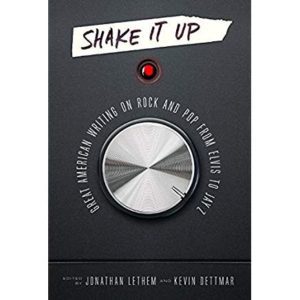 the field’s 1970s heyday.
the field’s 1970s heyday.
The novelist Jonathan Lethem and his Pomona College colleague (and resident Dylanologist) Kevin Dettmar have collected 50 years of the stuff — “From Elvis to Jay Z” — for the Library of America. My conversation with Lethem, for the Los Angeles Review of Books, is here.
July 21, 2017
The Mess We’re In: Politics, Economy and Journalism
OVER the last few weeks, I’ve been asked on several occasions if I can explain what the hell happened to this country. (I’ve been in London and Ireland for some of that time.) The simple answer is that I am as shocked as anyone by our new president (and to some extent by the related idiocy of Brexit.)
So while I try to keep this blog oriented around culture, I’ll post a trilogy of stories which involve me speaking to some learned and insightful people to try to get at the recent social/ political shifts. Partly this is simply because I am proud of these pieces and think these issues are dead serious right now. It’s partly because my book, which this blog serves an online expansion of, was in part about the issues concerned here, notably anti-intellectualism, income inequality and the decline/ defunding of responsible journalism.
The most recent of these stories is “What You See,” about the attacks, many from the current White House, on the news media and the very notion of objective truth.
The middle child is “Tracking Rage’s Path…,” on the roots and distorting effect of anger in American, and world, politics.
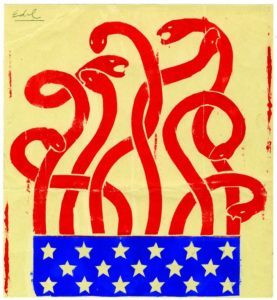
Photo courtesy LMU Magazine
This earliest, “Middle of Nowhere,” concerns inequality and the erosion of the U.S. middle class.
All of these pieces were written for the magazine at Loyola Marymount University, the Los Angeles school where I taught writing a few years ago. Hope the stories prove useful or clarifying.
July 19, 2017
“Money is a kind of poetry”: Lee Siegel’s The Draw
ONE of the finest memoirs I’ve read in many moons comes from veteran literary and culture critic Lee Siegel. His book The Draw tells the tale of an intellectually serious young man in a family w/ a messy, complicated relationship to money and class, which set repeated roadblocks before him. It’s lyrical, succinct, at times painful.
Here is my Q+A with Siegel, who is published here by FSG, for the Los Angeles Review of Books. In a funny way some of it — especially the effort of a boy from a not-rich family to become a writer and independent thinker — dovetails with my book Culture Crash. 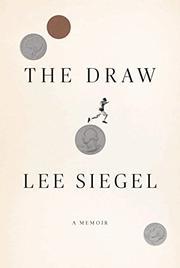
June 29, 2017
French Band Air at the Greek Theatre
FOR reasons I can’t entirely figure out or explain, continental Europeans have not had much luck with rock music, not matter how you define the term. (And no, the Scorpions are not excepted.) Why the average blues band from Birmingham or Belfast can typically do better than the finest combo in Rome or Frankfurt is a mystery I may never understand. The Swedes started to break the rule a decade or so ago, but there is simply no one among European rock bands to compare to Air, as they demonstrated at a career-retrospective show at LA’s Greek Theatre the other night that was simultaneously low-key and triumphant.
Twenty years ago, when I moved to Los Angeles, I almost immediately began hearing about a new French electronica band from my music and journalism friends. The as-yet-album and its singles started to seep through my world, much like the movie LA Confidential. By the spring of 1998, a few months after Moon Safari came out, Air seemed to be everywhere: On the radio, at parties, at the cooler cafes. I remember h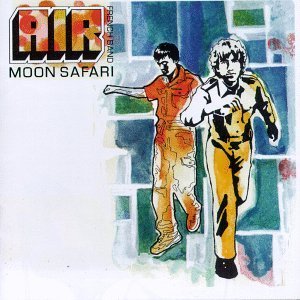 aving a beer at a Los Feliz bar with a girl I fancied, and the entirety of Moon Safari played on the jukebox that afternoon. Their mix of mellow keyboards, gentle female vocals, Euro kitsch, and something that sounded like Gallic irony was fresh and real, and electronica groups like Zero 7, Thievery Corporation, Sia and other masters of downtempo would soon borrow a bit of the group’s groovy cool. (Not everybody got it: I played Moon Safari for an older friend on a visit back East: “This sounds like an Italian porn soundtrack!” he exclaimed.)
aving a beer at a Los Feliz bar with a girl I fancied, and the entirety of Moon Safari played on the jukebox that afternoon. Their mix of mellow keyboards, gentle female vocals, Euro kitsch, and something that sounded like Gallic irony was fresh and real, and electronica groups like Zero 7, Thievery Corporation, Sia and other masters of downtempo would soon borrow a bit of the group’s groovy cool. (Not everybody got it: I played Moon Safari for an older friend on a visit back East: “This sounds like an Italian porn soundtrack!” he exclaimed.)
New albums, including a score for Sofia Coppola’s Virgin Suicides, appeared, and Air never really ventured too far from Moon Safari’s melange. For a lot of us, the French group that turned us on around the turn of the 21st century seemed to recede into memory? Had those guys gone back into architecture? Were they doing European movies now or something? (The duo’s latest LP is the retrospective Twentyears.)
This is all to say that their Greek show reminded me — and, judging from the response of the crowd — how perfect the band’s original combination had been. With Air’s two members out front and supporting musicians in shadows behind, the group paid homage to its two decades, with an emphasis on classic songs like Kelly Watch the Stars, La femme d’Argent, and Sexy Boy. Beck even came out to sing harmony in a number. A light show gave it an even deeper connection to ‘70s planetarium culture: Perhaps Air are Gen X’s Pink Floyd.
For complex reasons I’d not been to the Greek — the 1929 amphitheater tucked into the edge of Griffith Park — in a few years, and what a lovely place to see a band that place is. There were few surprises the other night, but this was a near-perfect California evening that seemed to bring together Another Green World-era Brian Eno with the Francophone weirdness of Daft Punk. Long may their French flags fly.
June 28, 2017
Walter Hopps and “The Dream Colony”
FOR Angelenos in the visual arts world, Walter Hopps (1932-2005) was an almost godlike figure — an eccentric, disorganized, perpetually tardy pill-popping genius who both discovered young artists and found ways to frame established figures that made them seem new.
Hopps — best known in these parts as a founder of the legendary Ferus Gallery in the late ’50s and curator of the Pasadena Museum of Art in the early ’60s — went on to an impressive career elsewhere after he left California. The whole story is told, in Hopps’ words, in his memoir The Dream Colony. It’s far better than I had any reason to expect. His family roots and early life sound like the kind of story Bob Dylan might have made up for himself.
The curator’s tale is told thanks to The New Yorker’s fiction editor, Deborah Treisman, who edited Hopps’ taped conversation. I spoke to Treisman — who appears tonight at the Getty Center — for the Los Angeles Review of Books, here.
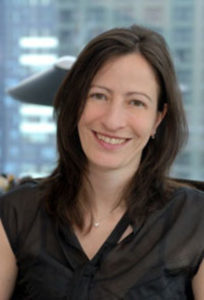
June 23, 2017
Lloyd Cole and All the Poets
YOUR humble blogger has been a fan of Lloyd Cole since songs like Lost Weekend and Why I Love Country Music showed up on “alternative” radio in the mid-’80s. I’ve seen him perform and interviewed him numerous times since then, and have been struck by what a fine storyteller as well as what an intellectually curious and overall literary (whatever that means) cat he is.
So it was a real pleasure to be able to speak to Cole as the third and latest installment of my All the Poets series on the Los Angeles Review of Books.
I’ll be posting some thoughts and cutting-room-floor stuff here, but for now, please check out my latest piece on Mr. Wrong,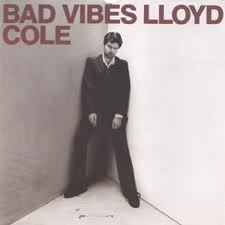 here.
here.
June 18, 2017
Two Los Angeles Choral Groups
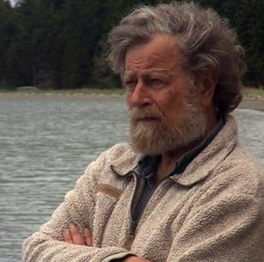
Morten Lauridsen
FOR reasons I don’t entirely understand, I’ve had a harder time with vocal and choral music than most other sorts of classical music. The human voice is the first ostensibly musical instrument we ever hear — why should it not strike strike my ear and naturally as the violin, cello or piano?
In any case, I’ve tried to make up for it this year by seeing more choral music: Yesterday I found myself at Disney Hall to see the season’s final concert of the Los Angeles Master Chorale — a program built around Morten Lauridsen’s Lux AEterna.
Lauritsen’s piece is one of a very few contemporary choral pieces I own and I’ve seen performances of other pieces of his music, but not this one. Twenty years ago April, the piece made its debut with the Master Chorale, and it’s been a popular and influential piece.
In any case, it was a delight to see its 20th anniversary marked with a number of other pieces alongside it. One was a Dante-inspired piece by Esa-Pekka Salonen, another was the West Coast premiere of an Eric Whitacre (the group’s flaxen-haired guest conductor), and yet another was a fresh arrangement of three classic American songs — the Christian music before Christian rock. This last bit, mixed by Shawn Kirchner, was indeed heavenly.
I expected the Master Chorale, headed by the well-regarded/down-to-earth Grant Gershon, to be a fine group with a forward-looking point of view.
The big surprise for me, then, was a recent concert by the Angel City Chorale at an old Methodist church on Wilshire. This was billed as Interactive: An Imaginative Multidimensional Event. I’m still not sure what that means, but the show was a blast. Some of it was exceptional, in fact, like some of the gospel music with black leads.
The interactive stuff that involved cell phones was mostly lost on me because my cell had just died. Some of the kids seemed to be loving it, so what do I know?
The United Methodist Church is a lovely site and quite decent acoustic space. And the singing here was top-notch.
If I were in the charge of the group, the percussion would not hit so hard on Wade on the Water — that song already has plenty o’ rhythmic drive — and the video/ cellphone stuff would not have been so central. But if I were in charge, none of what happened on that Saturday night would have, and I’m very glad it did.
Jan Swafford and Classical Music
YOUR humble blogger is a longtime fan of the classical music writer Jan Swafford, ever since friend gave me his lucid and wise Vintage guide.
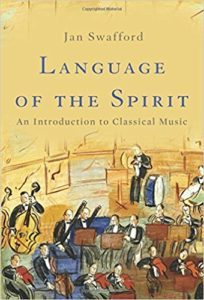 Swafford, who’s known for biographies of Beethoven, Brahms, and Ives, has just released The Language of the Spirit, an introduction of a different sort. I corresponded with the author for a piece on the LA Review of Books.
Swafford, who’s known for biographies of Beethoven, Brahms, and Ives, has just released The Language of the Spirit, an introduction of a different sort. I corresponded with the author for a piece on the LA Review of Books.
Here is my piece.
Scott Timberg's Blog
- Scott Timberg's profile
- 7 followers


